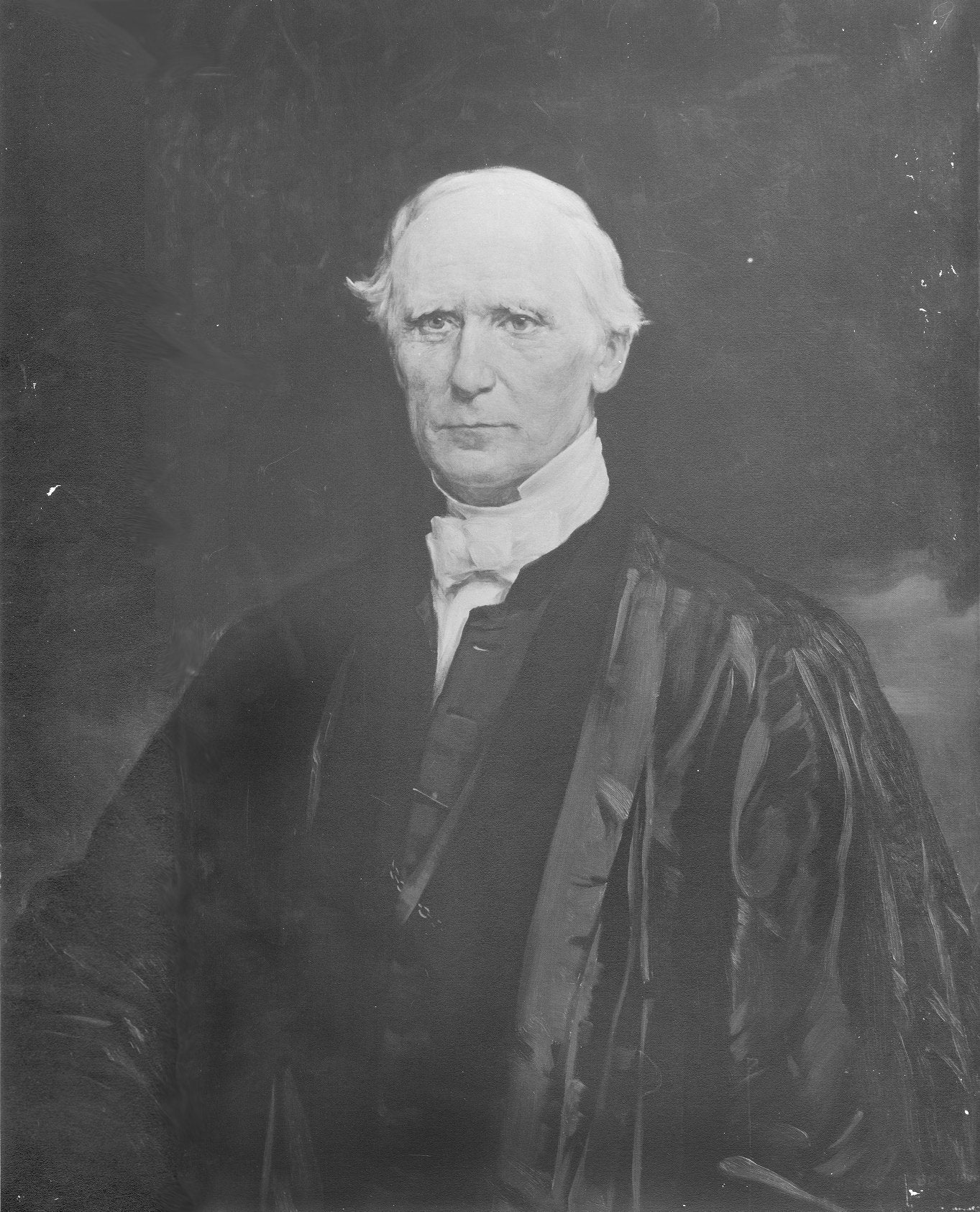Daniel Raynes Goodwin, the ninth provost of the University of Pennsylvania, was born in North Berwick, Maine, in 1811. Goodwin attended the academy in South Berwick and the Limerick Academy before matriculating at Bowdoin College. After graduating from Bowdoin in 1832, he briefly taught at an academy in Hallowell, Maine, before matriculating at the Andover Theological Seminary.
In 1835 Goodwin was called back to Bowdoin as a tutor in the department of modern languages where, later that same year, he was named professor of modern languages. Goodwin, however, decided that he needed to brush up on his language skills before he took the position full time so he spent the next two years in Germany, Italy, France, and Spain before returning to teach full time in 1837. Goodwin remained at Bowdoin until 1853 during which time he also served as the college librarian for fifteen years. During this time he was ordained a deacon in the Protestant Episcopal Church in 1847 and a priest the following year.
In 1853 Goodwin left Bowdoin to become the president of Trinity College in Hartford, Connecticut, where he continued to teach students as a professor of modern languages. Here Goodwin remained for seven years, during which time he was awarded the honorary degree of Doctor of Divinity by his alma mater. He left Trinity when he was named provost and professor of moral philosophy at the University of Pennsylvania.
Goodwin’s tenure at Penn was neither long nor marked by many significant developments in the University’s history. He stayed for only eight years after and made perhaps his biggest impact at his inaugural address during which he announced his support for physical training and dancing at Penn. Goodwin eventually resigned his post over a difference of opinion with the Board of Trustees regarding its decision to create a scientific school at Penn. Even though his tenure at Penn was unremarkable, the Board of Trustees did not ignore Goodwin’s superior intellect; Goodwin was awarded the honorary degree of Doctor of Laws in 1868.
Although Goodwin was never named rector of any church, his dedication to the Episcopal Church is evident in his activities following his resignation from Penn. In 1868 Goodwin was named dean of the Philadelphia Divinity School, where he had been a professor since 1865. He remained dean of the school until 1883 and continued as a professor until his death in 1890. Goodwin was also very active in Episcopal Church politics, representing Philadelphia Episcopalians at church conferences for nearly thirty years.

